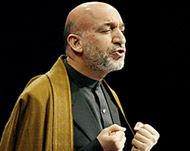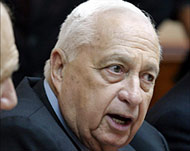Labour spin doctors sick over health
It was another torrid day for Tony Blair at the Labour party conference in Bournemouth.

In a widely predicted but still politically humiliating vote, the Labour party leadership was defeated on the cornerstone issue of Foundation hospitals.
“These proposals are just one step away from full-blown privatisation,” the GMB union delegate Sharon Holder told the conference to ringing applause, and the issue proved a lightning conductor for a host of other grievances with the leadership.
Health secretary Dr John Reid held his head in his hands – watched on by a pained Blair – as a delegate wielding a walking stick heckled during part of the debate.
Then, as if things could not get any worse they did…RMT union delegate, Mick Hogg, articulated the feelings of many when he complained that the war in Iraq was adding the equivalent of an extra 2p to every Briton’s income tax. The money, he said, could have been better spent.
“We’re on a path that could lead to never-ending war,” Hogg warned, “lets get off it now.”
But he was not given the chance to express his feelings in a ballot.
Cynical ploy
While the Labour leadership claimed to have gone to war for democracy in Baghdad, there were to be no votes in Bournemouth.
|
“We’re on a path that could lead to never-ending war” Mick Hogg, RMT delegate |
“I think it’s ludicrous,” the MP Jeremy Corbyn told Al Jazeera.net. “There is a democratic deficit in Iraq – and in the Labour party too. I can only imagine that the leadership were so frightened of the party’s view that they had to prevent them having a vote.”
“It may have seemed like a good fix to the party organisers,” he continued, “but people outside of Bournemouth, will just see it as a cynical ploy.”
On the conference floor, Corbyn’s sentiments were widely shared. The MP Alice Mahon said the decision to prevent a vote was “a disgrace”. The party’s leadership, she said, “are living in a bubble. Iraq comes up on every doorstep whenever we campaign.”
In a warning shot to the prime minister, she cried, “The people are ahead of you!”
Afghanistan
But Tony Blair will not have heard. For the day after promising delegates he would listen more to their concerns, he had left the podium with the Afghan president Hamid Karzai, before the debate even began.
Some delegates criticised the choice of Mr Karzai to warm up delegates for the Iraq debate.
 |
|
Karzai is no Nelson Mandela, |
“Hamid Karzai is not a Nelson Mandela figure,” Jeremy Corbyn said, “and there’s a great deal of exaggeration about the ‘success’ of the war in Afghanistan.”
“Eight thousand civilians were killed in that conflict, the country is riddled with depleted uranium, there’s a civil war in the south of the country, the north is run by warlords and Karzai’s writ does not run much beyond Kabul.”
Nonetheless, conference delegates gave the Afghan leader a warm welcome with standing ovations before and after his speech.
“We supported the war in Iraq because we wanted them to have the same freedom we now enjoy,” he told the delegates.
“We are liberated and have political freedom and freedom of the press,” he said. “But wherever terrorists are defeated, they still lurk about, challenging our lives and even burning down schools for little girls. Imagine!”
|
“I got to shake Tony Blair’s hand there and I just felt stunned afterwards, as though I now had blood on my own hands” Fringe meeting attendee |
regime change
In the debate that followed, speaker after speaker echoed the government’s case for regime change, despite a conference motion the year before which had supported military action against Iraq only in the event of explicit UN approval.
The Labour MP Anne Clwyd made the most impassioned defence of the war in Iraq, focussing on the gross human rights abuses of the Baathist regime, and her experiences in the Kurdish mountains in 1991.
“You never forget when a woman pushes a dead baby in front of your face,” she said, her voice breaking with emotion.”I do not believe we should close our eyes to such atrocities.”
One pro-war speaker, Eileen Wilson, compared the victims of Saddam Hussein’s regime to those of the Nazi Holocaust. Even so, she asked delegates not to dwell on the conflict. “We must move on as the war is over,” she said, “even if Iraq is not yet at peace.”
Rebel MPs argued that this was impossible when soldiers and civilians were still dying in Iraq. And in a fringe meeting, the MP Alan Simpson raised a demand for consistency in addressing war criminals in power, that may yet be taken up by sections of his party.
“I believe Ariel Sharon should be tried as a war criminal for the events that took place in Sabra and Chatila,” he told a meeting organised by War on Want. “The fact that he is prime minister should not change our position.”
 |
|
Sharon should be tried as a war |
Of course, the case for war crimes trials of sitting leaders is not one the current Labour party leadership is likely to warm to.
As one reluctant attendee of the most popular fringe meeting – Labour Friends of Israel – put it, “I got to shake Tony Blair’s hand there and I just felt stunned afterwards, as though I now had blood on my own hands.”
The debate about human rights, war crimes and political accountability in the Labour party has far from run its course.